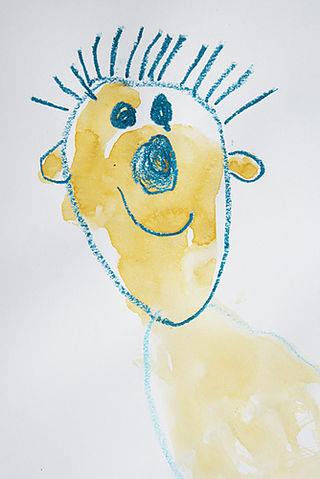Motivation
5 Questions to Ask a Child Psychologist
Find the right psychologist for your child and your family.
Posted December 29, 2015 Reviewed by Devon Frye

Your child has been struggling for weeks, months, maybe even years. Maybe it’s friendship issues. Maybe it’s school stress. Maybe your child seems anxious or irritable most of the time. Maybe you’re worried about your child’s temper. Maybe your family is going through a rough transition and it seems to be hitting your child hard. You’re wondering if your child needs to talk with a psychologist.
For most parents, the idea of bringing their child to see a psychologist seems scary. What if the psychologist makes things worse, convinces your child that he or she is “crazy,” or insists that your child has to be in therapy forever? What if the psychologist is one of those blame-the-mother people? Does having to bring your child to see a psychologist mean that you’re a failure as a parent?
I’ll start with the last question first: No, having to bring your child to see a psychologist absolutely does not make you a failure! In fact, getting your child the right help can be an extraordinarily loving gift that can reduce suffering, improve communication, and equip your child to cope. A child psychologist is not a parent—that role is uniquely yours. Bringing your child to see a psychologist adds to—rather than replaces—your relationship. A child psychologist is a combination coach, cheerleader, and fairy godmother, who also happens to have deep knowledge of child development, personal relationships, and clinical research.
Many people put off seeking help because they tell themselves the problem isn’t that bad… But if it’s not that bad, it probably won’t take that much to make things better! The right psychologist will help your child—and you—feel even more capable, not less.
The tricky thing is finding the right psychologist for your child and your family. Just like when you choose a pediatrician, there are many competent professionals out there, but you need to find someone that you can work with and trust.
Start by asking friends, your child’s pediatrician, or the school guidance counselor for suggestions of local child psychologists. Psychotherapy with kids is different than psychotherapy with adults, because kids are often reluctant participants initially, they are more concrete thinkers, and there are other people in charge of them (parents, teachers, babysitters, etc.). You should definitely find someone who enjoys kids and has experience working with them. At least 50 percent of the psychologist’s practice should involve working with children.
Once you have some names, make some phone calls. Briefly describe the situation then ask questions to get a feel for what it’s like to work with that particular psychologist.
Trust your gut: no one knows your child better than you do. You are the best person to decide which psychologist is a good fit for your child and your family.
5 Questions to Ask a Child Psychologist
To help with your search, here are some questions to ask a child psychologist. As a point of reference, I’ve also included how I would answer them.
Q: How would you typically work with this type of problem?
I haven't met your child, so I can't answer this question specifically, but, in general, I focus on helping kids become experts on the area where they struggle and to learn useful strategies for coping with it. [This could involve learning to communicate better, to think about situations from a different perspective, to reach out to others in kind rather than silly ways, to manage frustration, to build up confidence that they can handle anxiety-provoking situations…] I also work closely with parents, to help you figure out effective ways to support your child or deal with challenging situations. My hope is that I can be a source of both practical and emotional support for your child and you.
Q: How involved are parents in therapy?
I tend to work very collaboratively with parents. The way I think about it is that I'm the expert on psychology in general, and you're the expert on your child and your family in particular. Our job is to put our heads together and come up with ideas for helping this particular child at this particular time.
The younger the child, the more actively involved parents need to be in therapy. With very young children, in some sense, the parents are the main therapists—because you're the one who is with your child most of the time, and you're the one who is going to help implement whatever strategies we come up with.
But even with older kids and young teens, I think the parents’ input is very important. Kids don’t necessarily tell me what I need to know, so I generally meet with a parent for the first five or ten minutes of a session, before meeting with the child, just to hear how things have been going and if there are any new concerns. Often, I’ll have the parent come back in with the child at the end of the session, so the child can explain what we’re working on. This helps me check what the child is understanding and keeps the parent in the loop. Depending on what’s going on, I may also have sessions with the whole family or with just the parents.
I believe that therapy should not be mysterious, and that you, as a parent, have a right to know generally what we’re working on and how. On the other hand, kids also need some privacy to be able to trust me, so I’m not going to report, blow-by-blow, what your child said in a session with me. If there’s something important that I think you should know, I will encourage your child to tell you or ask your child’s permission to tell you. If there’s a serious safety issue, I will definitely tell you.
Q: How do we begin?
I like to meet with just the parent(s) initially. I do this for two reasons: First, it gives me a chance to ask a lot of questions to get to know your family, understand the history of the problem, what has or hasn’t helped so far, and also to learn about your child’s strengths. It’s just easier to get all this information without your child present. Second, this first parent meeting gives you a chance to look me over, to decide if I’m the right psychologist for your child and family.
We know from research that one of the main predictors of whether therapy works is whether the client feels connected to the therapist. At the end of the session, I’ll ask you if I seem like someone you can imagine your child connecting with. If you say no, you won’t hurt my feelings. I’ll make sure you get in with someone good. But if you say yes, that’s great. Then you can tell your child, “We met Dr. Eileen, and we think you’re going to like her.” This makes it easier for your child to come meet me.
Q: I think my child will be nervous about coming to see you. What should I say?
Sadly, very few children want to come see me at first! It’s normal for kids to be nervous about coming to see a psychologist, because they don’t know what to expect, and they’re often worried that this means they’re bad. I can almost always win them over, though! My goal in the first session is to help your child to feel comfortable and understood and to walk out with a sense of hope that we can work together so things will get better.
If your child likes the school counselor, you can say that I’m kind of like him or her.
With young children, you may want to say something along the lines of “She’s a nice lady who helps kids to feel happier and to get along better with family and friends. She also has a lot of fun toys and games in her office.”
With older kids, think about what your child wants: What problem does your child want to solve? Which areas of his or her life would your child like to improve? Setting goals that matter to your child can help your child be more receptive to therapy. (These goals may or may not overlap with your goals.)
You may also want to say, “Just try it for a few sessions, and see how it goes.”
Q: How soon should I expect improvement?
That's hard to predict, because people change at different rates. In general, problems that are more severe, have been around a long time, or affect many areas of your child’s life take longer to change. We'll need some time for your child to become comfortable with me and for us to figure out which strategies are most helpful. If there were a quick and easy solution, my guess is you would have done it yourself already!
Usually, I would expect to see noticeable progress by twelve weeks. We may be done sooner than that, or we may not be done at that point, depending on how complicated the situation is. I find that kids need to come regularly, on a weekly basis, for me to be enough of a presence in their lives to have a positive influence. It’s rare for me to see kids for more than a year, although some do come back after making good progress then taking a break from therapy for months or years.
Progress doesn’t tend to move in a straight line. Kids might show quick improvement and then plateau for awhile, or they might be slow to start, then take a big step forward, then hit a rough patch and slide backwards for a bit. We'll talk regularly about how things are going to make sure we focus on the most important issues and that, overall, we’re moving in the right direction.
Related Posts
Social Challenges of Children with ADHD
Growing Friendships blog posts are for general educational purposes only. They may or may not be relevant for your particular situation. You’re welcome to link to this post, but please don’t reproduce it without written permission from the author.
© Eileen Kennedy-Moore, Ph.D.




